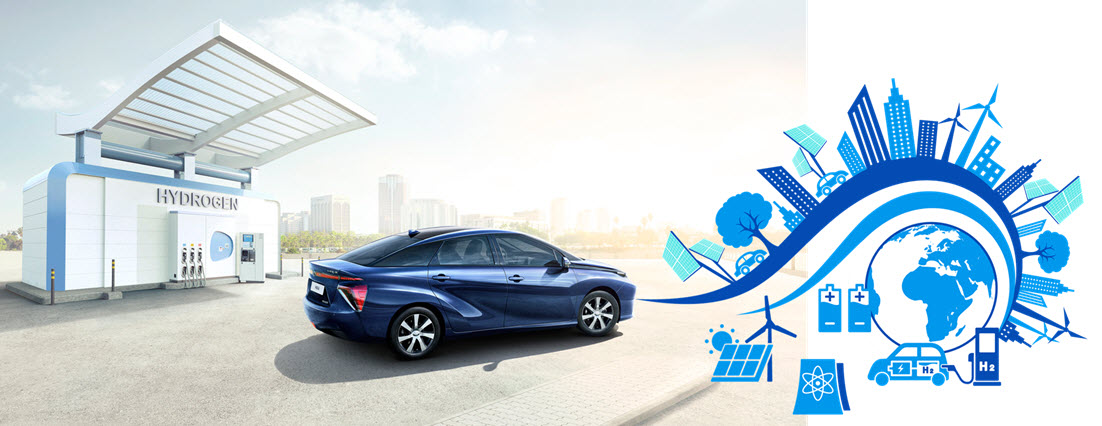
The Ministers and Delegates responsible for coordination of hydrogen energy policy within their respective countries met in Tokyo, Japan on 25 September 2019 to discuss strategies for cooperation toward the development of hydrogen energy. Over 30 countries and organizations attended the meeting, underscoring continued and growing momentum toward the wider production and use of hydrogen in the world.
They reaffirmed the view that hydrogen can be a key contributor to clean, safe and affordable energy for the future. The interest in hydrogen, including clean hydrogen, has increased worldwide and numerous activities are being conducted by governments, industries, and research institutions to unlock its potential as a clean, reliable and secure source of energy.
The Ministers and Delegates acknowledged significant progress made since the 1st Hydrogen Energy Ministerial Meeting (HEM) held in October 2018, as summarized in the Annex.
They reaffirmed the value of collaborating further to accelerate the progress in hydrogen technologies, contributing to a “Hydrogen Society1”, as part of a broad energy portfolio – a clean, more prosperous and secure energy future worldwide supported by using hydrogen in society where appropriate, across power, heat, transport, building and industry sectors.
In the 1st Hydrogen Energy Ministerial Meeting, the “Tokyo Statement” was released, which consists of four pillars of measures for hydrogen research, development, demonstration, and deployment. During the Clean Energy Ministerial (CEM) 2019 in Vancouver, a supportive Hydrogen Initiative was launched by Canada, Japan, US, EU, and the Netherlands, with the International Energy Agency (IEA) being selected as the coordinator. At the G20 Energy Ministerial Meeting on Energy Transitions and Global Environment for Sustainable Growth in Japan this year, Ministers recognized the importance of hydrogen and, on request of the G20 Presidency, the IEA published a comprehensive report to support the discussions in June 2019. The International Renewable Energy Agency (IRENA) has released its perspective on hydrogen on the occasion of the 2nd HEM. Also, the International Partnership for Hydrogen and Fuel Cells in the Economy (IPHE) met in South Africa and Austria since the last HEM, convening global partners in an enabling role, including dissemination of HEM plans and facilitating coordination. Now concrete actions are needed to implement the Tokyo Statement.
The need for a Global Action Agenda
Recognizing that the next ten years will be critical to enable wider deployment of hydrogen by scaling-up production and use of hydrogen as well as by bringing down the cost, concrete actions are needed to mobilize efforts globally. The Ministers and Delegates recognized the value of acting on the Global Action Agenda from the Tokyo Statement, a principle to guide actions for hydrogen technology research, development, demonstration, and deployment to achieve the scale-up of hydrogen in the future.
Global Action Agenda of a Tokyo Statement
The Ministers and Delegates recognize the importance of tackling challenges to scale up hydrogen comprehensively, including by formulating long-term strategies or roadmaps and identifying challenges and the necessary policies and programs to implement change. They encourage actions on the following items, where appropriate, in line with the four pillars in the Tokyo Statement, while taking into account different national circumstances:
Mobility across Applications
Numerous programs are being conducted to foster the use of hydrogen and fuel cells for mobility applications, including fuel cell vehicles (FCV), fuel cell (FC) trucks, FC buses, FC trains, FC ships as well as in other applications such as forklifts, off-road vehicles, and aviation. To further encourage the use of hydrogen and fuel cells in this area, it is of value to share, where appropriate, global, aspirational goals such as, but not limited to, “10 million hydrogen-powered systems” and “10 thousand Hydrogen Refueling Stations (HRS)” in 10 years (“Ten”), as indicative, non-mandatory and collective goals to help incentivize and mobilize the private sector and investment community. Other possible examples include global or regional goals for clean hydrogen, which may be set based on individual national or state aims or mandates. To this end, a further study to estimate the demand for clean hydrogen would be of value. To achieve such goals, the following actions, in areas of infrastructure development, market expansion, harmonization of regulations, codes and standards, R&D for next-generation technology development, and ensuring safety in the use of hydrogen, are encouraged:
Read the Entire Statement
Source: The Hydrogen Energy Ministerial Meeting
Read the most up to date Fuel Cell and Hydrogen Industry news at FuelCellsWorks




